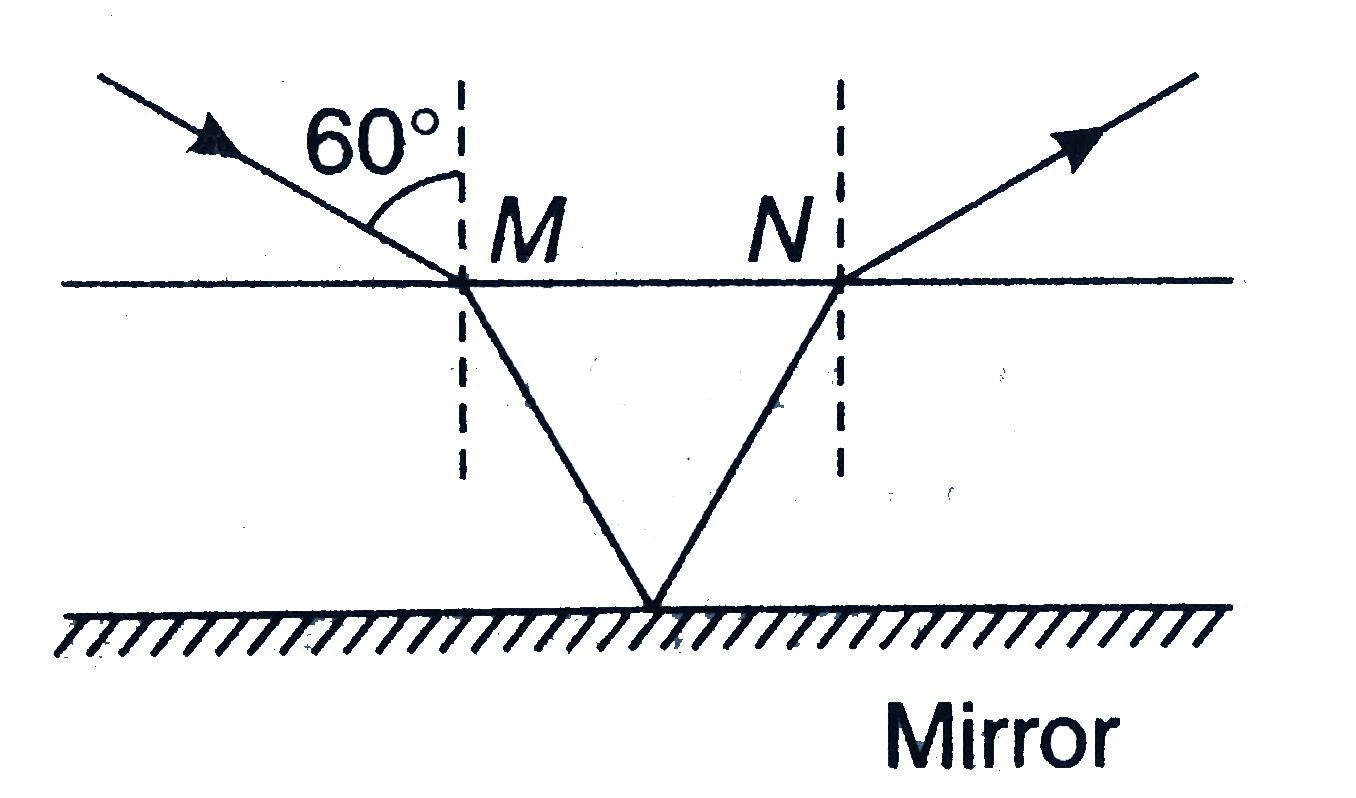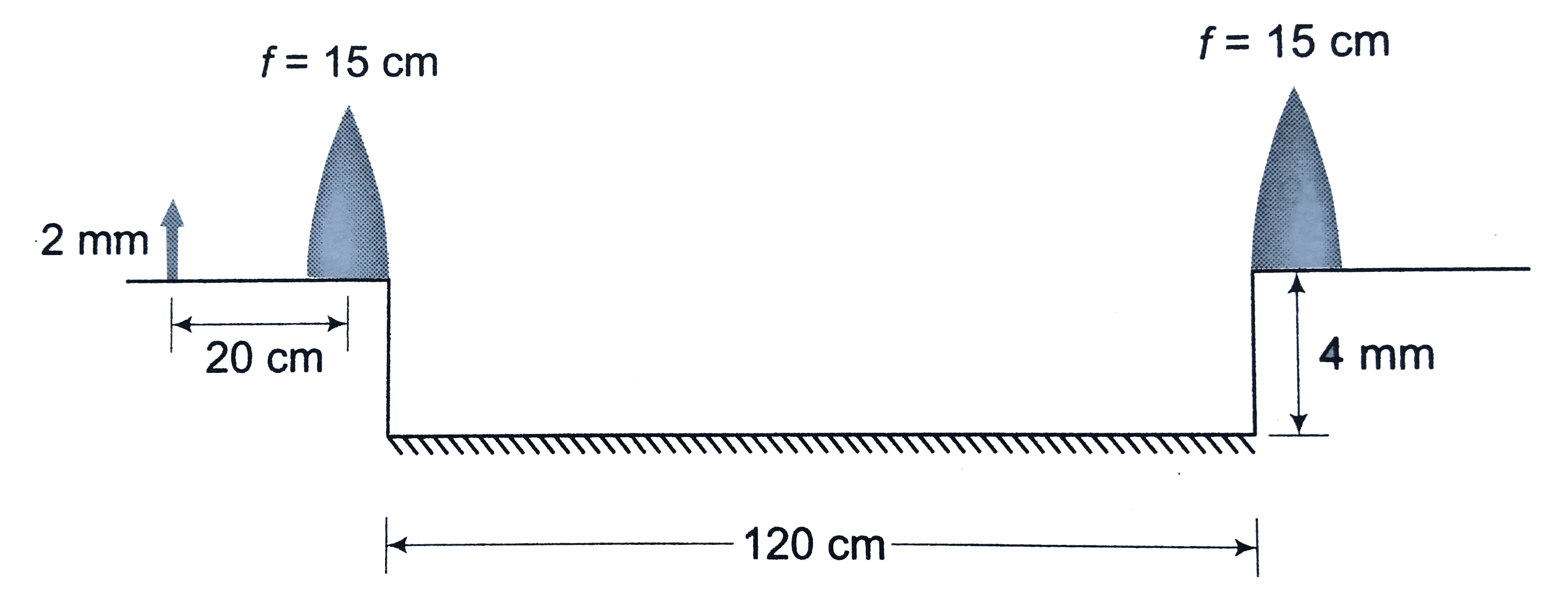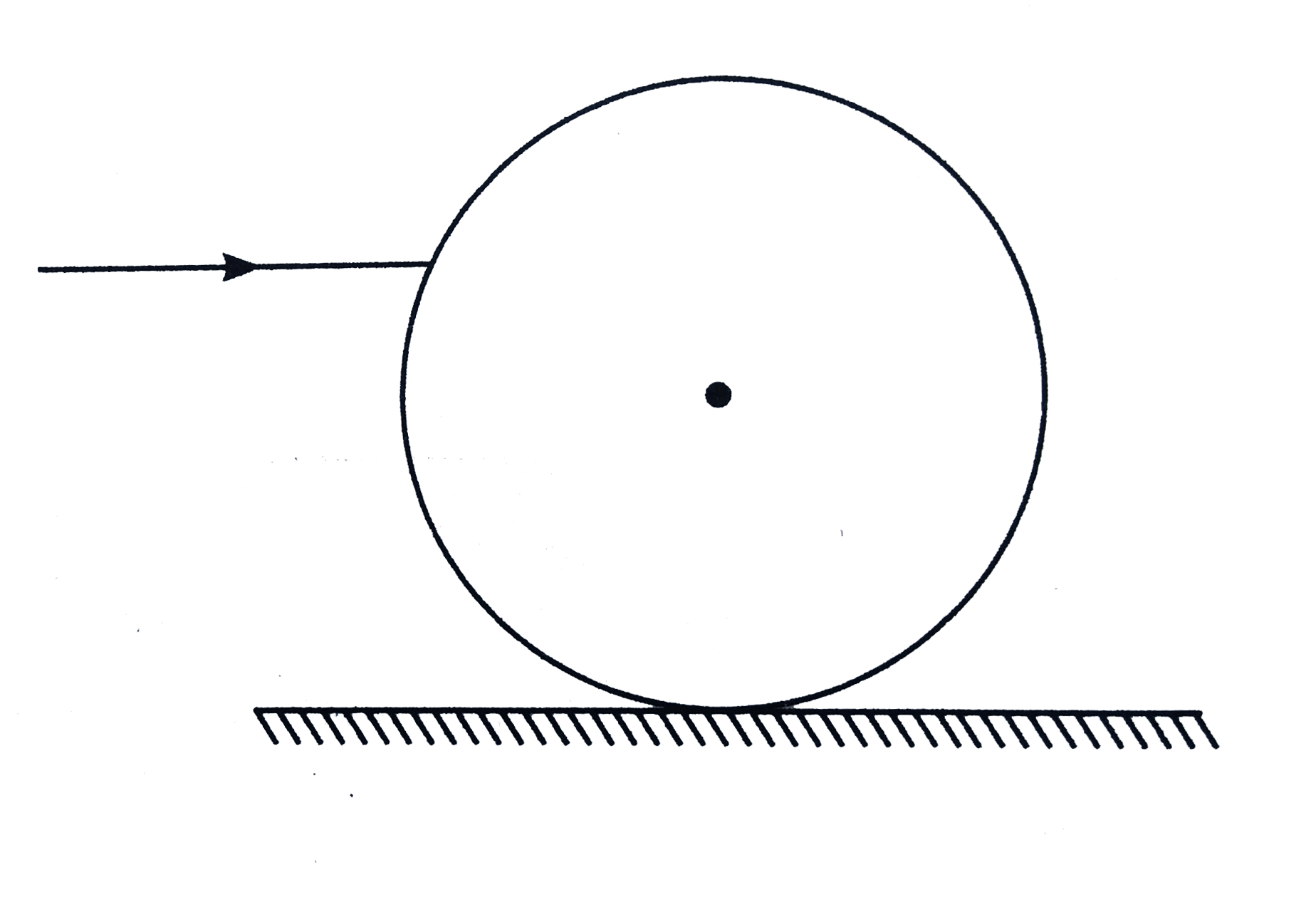Complete Solutions to Subjective Questions of chapter REFRACTION OF LIGHT of Class 12 book with complete answers and questions
| Class 12 | PHYSICS |
| Chapter | REFRACTION OF LIGHT |
| DC PANDEY | Subjective Questions |
| Number Of Questions | 8 |
| Academic Year | 2023-24 |
A plate with plane parallel faces having refractiv` index `1.8` rests on a plane mirror. A light ray is incident on the upper face of the plate at `60^@.` How far from the entry point will the ray emerge after reflection by the mirror. The plate is `6cm` thick?

View SolutionA point source of light S is placed at the bottom of a vessel containg a liquid of refractive index `5//3.` A person is viewing the source from above the surface. There is an opaque disc of radius `1 cm` floating on the surface. The centre of the disc lies vertically above the source S. The liquid from the vessel is gradually drained out through a tap. What is the maximum height of the liquid for which the source cannot at all be seen from above?
View SolutionA convexo-convex has a focal length of `f_1=10 cm.` One of the lens surfaces having a radius of curvature of `R=10 cm` is coated with silver. Construct the image of the object produced by the given optical system and determine the position of the image if the object is at a distance of `a=15 cm` from the lens. Refractive index of lens `=1.5.`
View SolutionA convex lens of focal length `15 cm` is split into two halves and the two halves are placed at a separation of `120 cm.` Between, the two halves of convex lens a plane mirror is placed horizontal and at a distance of `4 mm` below the principal axis of the lens halves. An object of length `2 mm` is placed at a distance of `20 cm` from one half lens as shown in figure.

Find the position and size of the final image.
Trace the path of rays forming the image.
View SolutionA cylinderical glass rod of radius `0.1 m` and refractive index `sqrt3` lies on a horizontal plane mirror. A horizontal ray of light moving perpendicular to the axis of the rod is incident on it. At what height from the mirror should the ray be incident so that it leaves the rod at a height of `0.1 m` above the plane mirror? At what centre to centre distance a second similar rod, parallel to the first, be placed on the mirror, such that the emergent ray from the second rod is in line with the incident ray on the first rod?

View SolutionA ray of light is refracted through a sphere whose material has a refractive index `mu` in such a way that it passes through the extremities of two radii which make an angle `beta` with each other. Prove that if `alpha` is the deviation of the ray caused by its passage through the sphere, then
`cos((beta-alpha)/2)=mu cos(beta/alpha)`
View SolutionA man of height `2.0 m` is standing on a level road because of temprature variation the refractive index of air is varying as `mu=sqrt(1+ay),` where y is height from road. If `a=2.0xx10^-6 m^-1.` Then, find distant point that he can see on the road.
View SolutionA glass rod has ends as shown in figure. The refractive index of glass is `mu`. The object O is at a distance `2R` from the surface of larger radius of curvature. The distance between apexes of ends is `3R.` Find the distance of image formed of the point object from right hand vertex. What is the condition to be satisfied if the image is to be real?

View Solution
Subjective Questions questions and complete solutions for chapter REFRACTION OF LIGHT of DC PANDEY PHYSICS (HINGLISH) of Class 12
All Exercises from DC PANDEY Class 12 PHYSICS REFRACTION OF LIGHT
- Example
- Example Type 10
- Example Type 11
- Exercise 31.1
- Exercise 31.2
- Exercise 31.4
- Exercise 31.5
- Exercise 31.6
- Exercise 31.7
- Exercise 31.8
- Introductory exercise
- Level 1 Assertion And Reason
- Level 1 Objective
- Level 1 Subjective
- Level 2 Comprehension Based
- Level 2 More Than One Correct
- Level 2 Single Correct
- Level 2 Subjective
- more than one correct option
- Objective Questions
- Single Correct Option
- Solved Example
- Subjective Questions